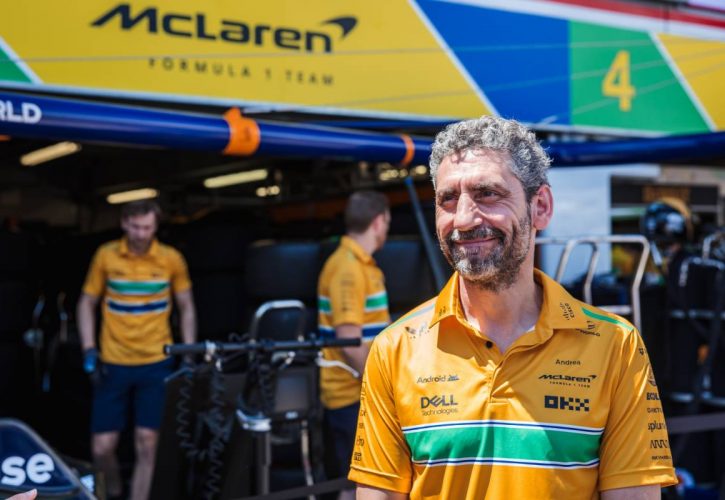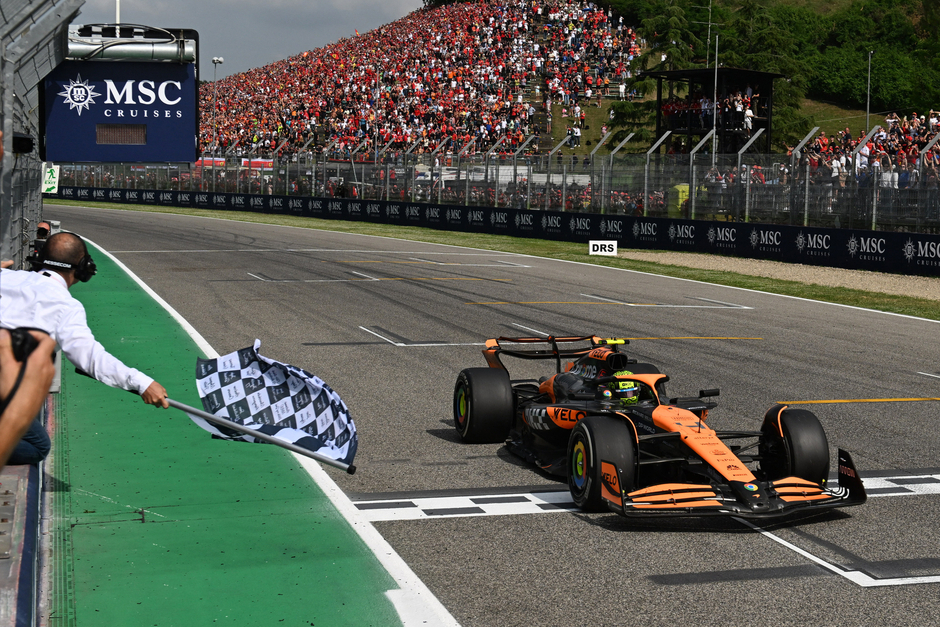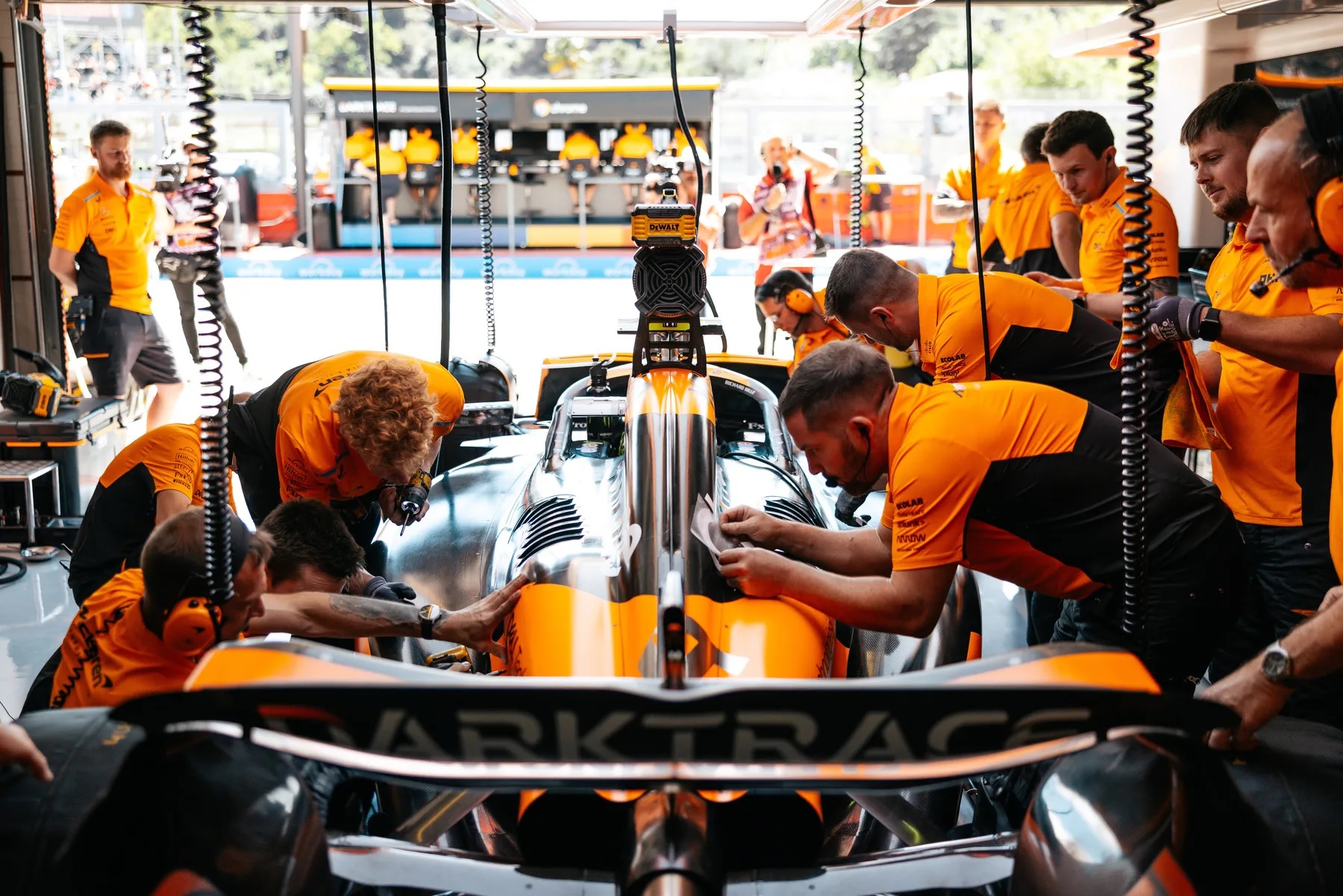
McLaren F1 team principal Andrea Stella has been instrumental in transforming team papaya from a midfield outfit to a genuine race winning contender, and the Italian has singled out a key trait that he believes has contributed to his team’s success.
Just over a year ago, McLaren was facing a difficult season, its MCL60 weighed down by an under-developed concept put together by an incomplete technical structure.
Fast forward to today, McLaren is not just competitive, the Woking-based outfit is consistently racing at the front, challenging Red Bull’s dominance and even surpassing the latter as was the case in Miami where Lando Norris conquered his maiden win in F1.
Stella, who replaced Andreas Seidl as team principal at the start of the 2023 season, has played a pivotal role in this recent success story.
Last year, the 53-year-old led an in-depth restructuring of McLaren’s engineering department which in turn resulted in a comprehensive development programme that significantly improved its car’s performance and ensured a transformation that has extended into 2024.
It's undeniable that under Stella’s guidance, McLaren has undergone a significant cultural shift, fostering a more decisive and efficient working environment.
And the Italian points to a surprising personal trait that has been an important factor in his team’s metamorphosis.
“I am not confident,” Stella said in an interview with Speedcafe in Monaco last week. “I am not joking,” he added.
“I only know that, if we want this to perpetuate and repeat itself over time, we need to deliver performance to the car.
“We need – everyone needs – to deliver the projects that we are working on.”

Despite McLaren’s success, Stella remains grounded. He acknowledges his team's collective effort and avoids taking sole credit for the turnaround.
It’s a leadership style that has produced a culture of open communication but more importantly of accountability.
Stella also isn't afraid to empower his staff, consistently highlights their efforts and contributions and publicly recognizing their hard work, which in turn produces a sense of shared ownership and motivates the team to achieve excellence.
This approach prioritizes long-term sustainable development over short-term victories.
“Leaders need to lead by simple and clear objectives to the people that can then be empowered to do their job,” he affirmed.
“This is the only thing I know. There are a few more, but I don't want to disclose our approach to things.
“Results come to us. It's not us going to results.

©McLaren
In essence, Stella advocates for a work ethic-driven approach to confidence building, insisting the latter comes from hard work and a belief in the team's process, not simply positive affirmations.
“Confidence… What is confidence? It's a psychological thing,” he asserted. “It's the work that gives you confidence.
“When I worked with some champions in the past, they were not getting the confidence because they were going to the psychiatrist. The confidence was coming from the work they were doing.
“The confidence came from knowing, like ‘I think none of my competitors is working like I'm doing', and then the confidence was growing.
“So I'm not confident at all,” he restated.
“I only know that we need to elaborate our way forward, stick with it, and believe that will take us there, because we won't want to be too distracted.”
Keep up to date with all the F1 news via Facebook and Twitter







